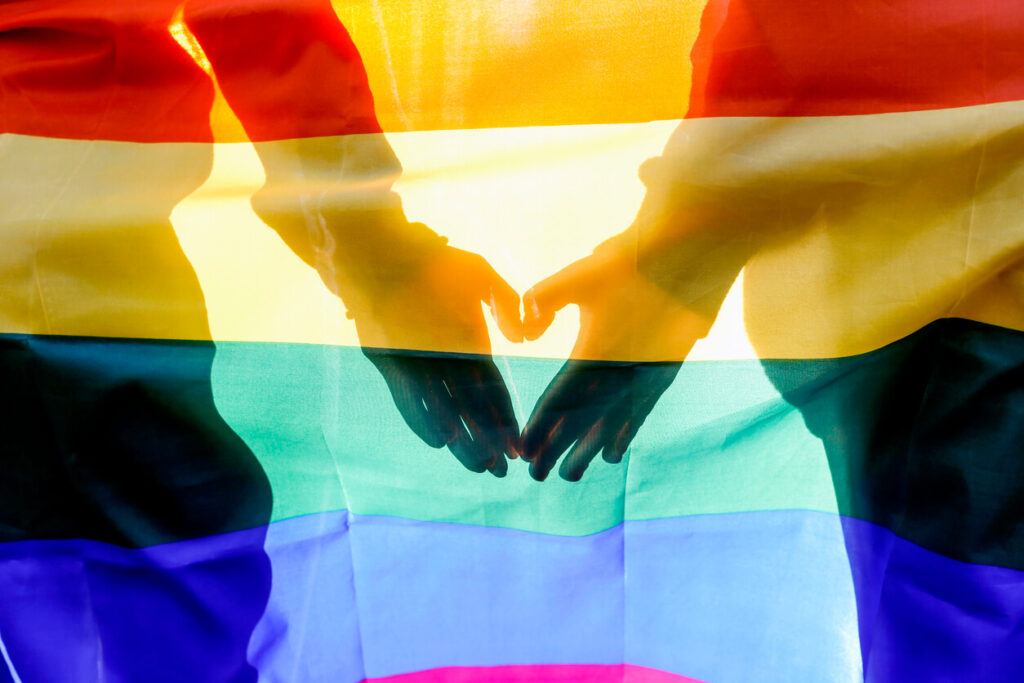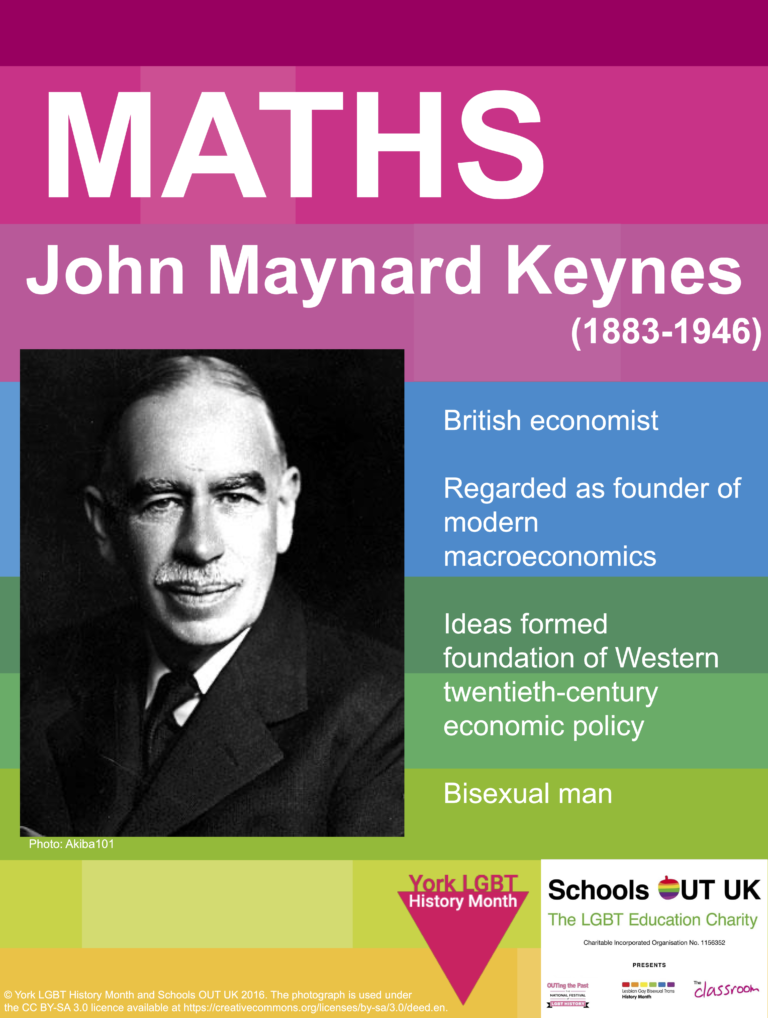
While the US celebrates Black History Month, the UK nominates February as time to celebrate LGBT+. Of course, raising awareness and promoting positive action shouldn’t be relegated to 1 month of the year so whenever you find this post, grab some ideas to make your teaching space more culturally-sustaining for all. As a reward, download a ready-to-go lesson for Monday and enjoy the weekend!
What exactly is LGBT+ month?
Brighton’s School of Education explains:
LGBT History Month is an annual month-long observance of lesbian, gay, bisexual and transgender history and the history of the gay rights and related civil rights movements. It is observed in February in the UK to coincide with a major celebration of the 2003 abolition of Section 28 of the 1988 Local Government Act which stated that councils should not “intentionally promote homosexuality or publish material with the intention of promoting homosexuality” in its schools or other areas of their work.
Find below a curated collection of FREE resources to explore this with your learners. I definitely encourage you to find local stories too, as these resources will (unsurprisingly) be rather UK-focused in language and content.
Important Note - The Elephant in the Room
Not all teachers work in places where it is safe to be seen promoting LGBT+ rights. I work in a predominantly Muslim country where homosexual acts are illegal. However, while it is illegal to explicitly encourage homosexuality, the law is somewhat unclear when it comes to discussion. For this reason, I do feature LGBT+ materials (including books, articles, videos etc) in my classroom. I also display this poster on my door (as do other colleagues). My feeling is that those who it doesn’t matter to probably won’t notice it, but for those who it matters to they need to know I value them. You will have to decide how deeply you can delve into this topic with your students. My personal stance is you can discuss a lot under the umbrella of ‘tolerance’ – far from an ideal when it comes to equity, but perhaps better than nothing.
Set of 26 Classroom Posters

If you believe that ‘out of sight is out of mind’, then an effective way to bring LGBT+ heroes into the spotlight is this set of 26 classroom posters. Covering all the usual subjects, this set also has heroes from modern languages, engineering, textiles, child development, and more. Once you’ve downloaded the posters (and hopefully distributed them to your colleagues), look through the rest of the site for a huge range of materials aimed at teachers, parents, and – most importantly – students themselves. Click here to access the poster page and remember to check out other pages to find treasures like this (UK-centric) wall chart.

Try this!
Could your students be inspired by these posters to create their own? Challenge them to produce (multilingual?) additions based on local or national heroes, using these posters as a template. (Quick tech tip – try the Eye Dropper Chrome Extension to match colours). Why not send the resulting posters to the website and promote the truth that #loveislove everywhere?
The LGBT+ Faces Playlist (Youtube)
If you’re looking for audiovisual material that’s less than 2 minutes long, this collection of videos is a collaboration between LGBT+ History Month and Sink the Pink who claim to be “the largest and fastest growing LGBTQ+ collective and live performance act to come out of the UK. Continuously challenging the status quo around modern day entertainment culture.” The purpose of the playlist is described as follows:
Every year since 2014, LGBT+ History Month has chosen to highlight the often forgotten lives of people from the past who thrived and succeeded in the face of prejudice and ignorance.

Try this!
Students could use these videos as source material to produce their own posters to add to the collection above.
Alternatively, you could use a jigsaw viewing activity for students to learn as much as possible in the time available.
LGBT+ Lesson Plans for EAL (ESL)
This 1-hour lesson focuses on Lily Parr, a British LGBT+ football hero. It is aimed at European Level B2 (around upper-intermediate) and covers the following learning objectives:
- to express opinions and give reasons;
- to make predictions;
- to read for specific detail;
- to think critically;
- to practise research and presentation skills
The lesson materials are here and the teacher notes are here.
Additional EAL lesson materials on LGBT+ issues can be found here:
- China Reverses Ban on LGBT Content (available at 3 levels)
- 3 Activities for All Levels (including a board game!)

Try this!
Sourcing lower-level materials on this topic is a challenge. If you find any that look good and can save teachers time, do add them below in the comments or post them in our very welcoming Facebook group.
Even better – why not recruit your learners in the work to raise awareness? Researching and producing texts in different languages would be a great way to empower your learners and help them share knowledge within their own communities. Authentic learning at its best!
Creating an LGBT+ Inclusive Curriculum for Younger Learners
It’s fairly easy to find LGBT+ materials for teens upwards because we can use news stories, articles, and choose from thousands of online videos. However, younger learners may need a more scaffolded approach and therefore require more specifically-tailored materials and approaches.
As noted above, it takes more than 1 month in the year to embed inclusive practices in our classrooms. If this isn’t something you’ve done much so far, today is a great time to start. To support primary (elementary) teachers in creating an LGBT+ inclusive curriculum across all subject areas, Stonewall UK have created a comprehensive, yet digestible, guide. Click on the image below to access the PDF.
As well as this guide, the Gender Identity Research and Education Society (UK) has produced 2 lesson plans for upper and lower primary (elementary) here.
Finally, the Welcoming Schools page contains a wealth of resources. I particularly like the link on how to be an ally and stand up to bullying. It’s never to young to start!
Lesson Plan for SEN Learners
In the UK, SEN stands for ‘special educational needs‘. You can see from the description of this next share that the lesson plan can easily be adapted to all learners across all ages.
In this lesson for learners with SEN, we look at the many different types of flags around the world. Learners understand that flags do not just represent countries but also communities and organisations. Learners explore 3 individual flags (union jack, rainbow flag, and the Olympic flag) and present their findings according to ability back to the group.
Use the flag of the country you are situated in and consider how you would follow up this lesson to ensure all members of the LGBT+ community are included. Access the lesson materials here. An alternative download page is here.
Selected Additional Resources
Any search engine will offer thousands of helpful materials when it comes to LGBT+ materials for the classroom. Here, I share just a few more in the hope that at least 1 of the resources on this page will encourage you to add an explicit LGBT+ focus to your curriculum. Even if the context for publishing is different from where you are, it is worth the time to adapt the materials to your context.
- LGBT+ 101 (review the basics for all community members)
- Dealing With Homophobia & Homophobic Bullying in Schools
- Using Language Effectively (reflect on this within your own context)
- Explore LGBT Through Film
- The Proud Trust (a huge repository of resources & training for teachers)
- The Guardian’s Guide on How to Teach…LGBT+ Month
Share My Lesson offers a range of resources:
- LGBTQ History Month: Pre-K & Elementary
- LGBTQ History Month: Middle & High School
- LGBTQ History Month: Blogs and Articles
- LGBTQ History Month: Related Collections
For those teaching in spaces where LGBT+ populations are actively oppressed, there is even more urgency in finding culturally-appropriate materials for the classroom. I continually struggle with this myself, but hearing voices from those communities can be helpful. I share the following materials with this in mind. With more mature students (or communities that are open to the conversation) these might provide starting points for discussion and reflection.

Try this!
Providing optional reading lists on the topic may be a way to let students know you respect the identities of all learners. Get to know your students and seek to understand their family backgrounds. Work with what you know to do what you can whenever – and as soon as – you can.
Final Thoughts
Battling LGBT+-related phobias is not always easy, but it is worthwhile. We, as educators, have the opportunity to encourage critical thinking around all controversial issues. It is not something we should shy away from and if we need support for courage, we can reach out to like-minded people such as our Facebook group, and the many organisations that are expert in this work.
We just need to take the next step.
We’ve got this.


